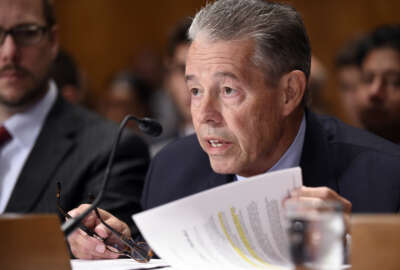
Estate vs. retirement planning: You bet your life, literally!
Do you know the difference between retirement planning and estate planning? Senior Correspondent Mike Causey says most people don’t and it can cost them and t...
So what, if anything, is the difference between retirement planning and estate planning? Short answer:
A lot!
One is for that hopefully happy time when you change direction, maybe ease up. Have more leisure time and more fun.
The other is sort of an after-you’ve-gone shopping list. How you would like things to be, and be divided, to minimize stress on your loved ones and avoid those sometimes bitter (possibly permanent) family splits that happen after the funeral. Not a fun subject but one most people should take seriously. Especially if they love their spouse, kids and other family members. And want to minimize problems and sometimes make the tough decisions beforehand for them. Definitely not fun. Or easy. But a nice gift to give people, especially relatives, you care for.
So today’s guest on our Your Turn radio show is Tom O’Rourke. He’s a Washington area attorney specializing in estate law. He’s a former fed (with the IRS) who knows the CSRS, Offset and FERS retirement programs, how Long Term Care insurance works. While most feds don’t think of themselves as having “estates”, O’Rourke says that many — especially those in the Washington area — do have substantial estates.
I asked him about estate planning vs. retirement planning: How are they similar, how are they different? When do you start and what do you do? His response:
Retirement planning is much broader and your estate plan should be part of your retirement plan. An estate plan has three basic goals:
- To allow you to control your assets as long as you are able to do so.
- To protect you and your loved ones in the event of incapacity.
- To distribute your assets in accordance with your wishes following your death.
Your retirement plan encompasses much broader goals such as :
- Making sure you have sufficient assets to support your retirement lifestyle.
- Making sure any health care needs can be met in the location you retire.
- Proximity to friends, family and loved ones.
- Determining how you will spend the time previously devoted to your job.
- Developing an estate plan that is consistent with your goals.
When to Start Planning. The earlier the better. All persons who are at least 18 or older should have a basic estate plan in place. It has often been said that you should start to plan for retirement on your first day of work. I agree.
What about Trusts? Trusts: There are several kinds. Which one, if any, should you consider.
Types of Trusts: revocable, irrevocable, testamentary, living, and numerous special purpose trusts such as for care of minors, creditor protection trusts, tax planning trusts, dynasty trusts, pet trusts, etc.
What’s a medical directive? Why all adults (18 or older) need one and what happens if you don’t have one.
Taking the heat off your kids. The value of a will, and of long-term care insurance, which can be a million dollar gift to your children and family members.
I will be prepared to discuss why having a will takes the heat off of your kids and why long term care insurance can be most helpful.
What are the things everybody should do?
At a minimum, everybody needs a medical directive.
What are the things most people should avoid?
Most people avoid any estate planning and two-thirds of all people do not have a will. Many people tend to avoid planning for retirement when they are young and when it can be the most beneficial time to begin their planning.
So join Tom and me today, 10 a.m. EST, at www.federalnewsradio.com. Or if you prefer real, old-fashioned radio and are in the D.C. area you can listen t 1500 AM. If you have questions, you can send them to me before showtime at: mcausey@federalnewsradio.com. Or you can call in during the show 202-465-3080. Remember with estate/retirement planning there is no such thing as a dumb question. Thanks, and we hope this show, which will be archived on our website, helps you and your friends.
Nearly Useless Factoid
By Michael O’Connell
The estimated cost for a traditional funeral in the U.S. averages from $8,000 to 10,000.
Source: Funeral Tips
Copyright © 2024 Federal News Network. All rights reserved. This website is not intended for users located within the European Economic Area.
Mike Causey is senior correspondent for Federal News Network and writes his daily Federal Report column on federal employees’ pay, benefits and retirement.
Follow @mcauseyWFED




